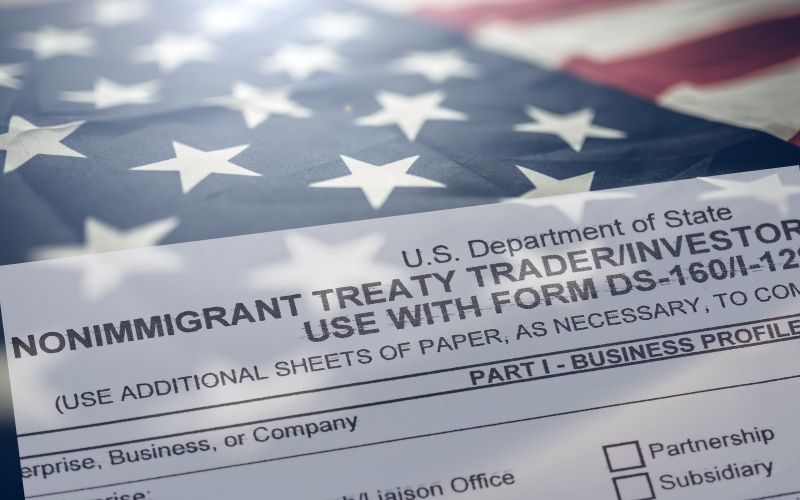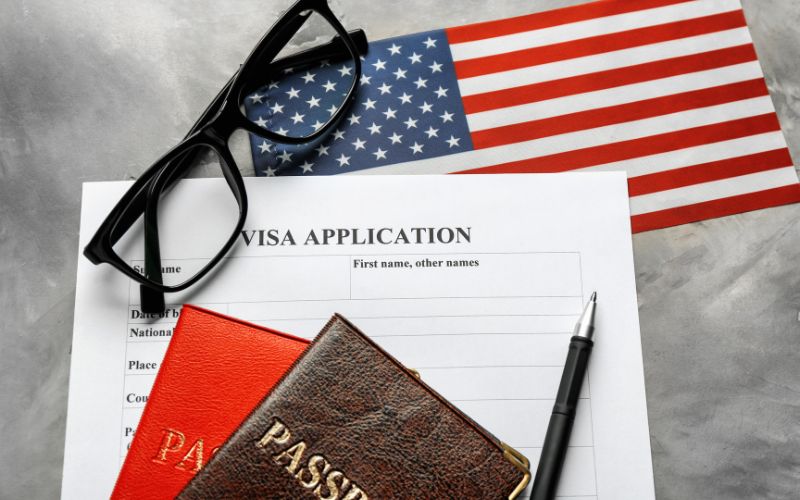Investment Visa to USA: EB-5 or E-2 Visa?
Thinking about moving to the U.S. by investing in a business? You’re not alone. Thousands of foreign investors are exploring the best investment visa to USA, and two programs stand out: the EB-5 immigrant investor visa and the E-2 treaty investor visa.
Both allow you to live and work in the U.S. through a qualifying business investment, but differ in requirements, benefits, and long-term immigration outcomes.
This guide breaks down the differences, explains how each visa works, and highlights why the E-2 visa through franchising is becoming an attractive path for immigrant investors.
What Is the EB-5 Visa?
The EB-5 visa program, officially known as the EB-5 Immigrant Investor Program, was created to promote economic growth by encouraging capital investment from foreign nationals.
In return for making a qualifying investment and meeting job creation requirements, immigrant investors and their immediate family members (spouses and unmarried children under 21) may apply for lawful permanent residence, also known as a green card.
The Key Requirements:
- Investing in a new commercial enterprise must be a for-profit activity formed for the ongoing conduct of lawful business.
- Minimum investment costs are $1,050,000 or $800,000 if the business is located in a targeted employment area (TEA), which includes a rural area or one with high unemployment.
- The investment must lead to at least 10 full-time job creations for lawful permanent resident or U.S. citizens.
- All business funds must come from legal sources and be considered “at risk,” meaning they are subject to typical business risks.
Investment Pathways: Direct Investment vs. Regional Centers
Under the EB-5 program, you can choose between two main investment paths:
Direct Investment:
- Requires you to invest in and manage the business in a targeted employment area directly.
- You must show direct job creation, meaning actual hiring of employees with a clear employer-employee relationship.
Regional Center Program:
- Allows you to invest through USCIS-approved regional centers.
- These centers pool investments for larger projects, and indirect jobs may count toward the job creation criteria.
- Typically, a more passive form of investment, though it may include administrative fees.
The EB-5 Investment Process
The process begins by filing an immigrant petition (Form I-526 or I-526E) with U.S. Citizenship and Immigration Services. After approval, your case will be transferred to the national visa center for additional processing.
Next steps include submitting civil documents and other required documents for the immigrant visa application. After a medical exam and background check, you and your immediate members may receive a conditional green card valid for two years.
To remove conditions and obtain permanent resident status, you must later file Form I-829 and demonstrate that your qualifying investment has met all job creation requirements.
Timeline and Updates
The EB-5 immigrant investor process can take 24 months or more due to high demand and regulatory reviews. Recent changes, such as the Reform and Integrity Act, have added new safeguards to the regional center program and increased oversight.
Despite the complexity, the EB-5 visa remains a viable pathway for foreign nationals seeking permanent residence through capital investment.
The Key Benefits of the EB-5 Visa
- Lawful permanent residence (green card) for you and qualifying family members.
- No employer-to-employee relationship required.
- Flexibility to live and work anywhere in the United States.
- Eligibility to apply for U.S. citizenship after maintaining permanent residency status for five years.
- Access to U.S. education, healthcare, and markets as green card holders.
- The EB-5 visa program is for individuals with access to significant financial resources. It requires careful planning, thorough documentation, and compliance with immigration law.
What About the E-2 Visa?

The E-2 visa offers a more flexible and cost-effective alternative for foreign investors from treaty countries. While it is a non-immigrant visa and does not automatically lead to a green card, it can still provide long-term residency through renewals and strategic planning.
The E-2 Visa Overview:
- You must be a citizen of an E-2 treaty country with the United States.
- You must make a substantial investment in a for-profit activity in the U.S., often starting at around $100,000.
- You must own at least 50 percent of the business or be in a managerial position.
- The business must be active and generate income beyond just supporting your family.
Advantages of the E-2 Visa
- Lower minimum investment compared to the EB-5 visa.
- Faster processing, sometimes in as little as a few weeks.
- The visa can be renewed indefinitely if the business remains active and meets requirements.
- Your spouse can apply for work authorization, and your children can attend school in the U.S.
- No fixed job creation requirement, although hiring U.S. workers is encouraged.
Why Choose an E-2 Visa Through Franchising?

Franchising offers a smart, strategic path to securing an E-2 investor visa—and it’s not just about brand names. Here’s why this approach appeals to so many foreign investors:
A Proven Business Model with Built-In Support
Franchises come with tested systems, brand recognition, and a roadmap for success. You’re not starting from scratch.
With access to training, operational guidance, and marketing tools, you can avoid common pitfalls of launching a business. That kind of structure gives you and immigration officials confidence in the viability of your investment.
Clear Investment Value
Franchise investments typically include detailed cost breakdowns, franchise fees, build-out costs, inventory, and more. This clarity helps demonstrate your investment is substantial and at risk, a key E-2 requirement.
Plus, strong business plans and financial projections from the franchisor make it easier to show your business is real, viable, and promote economic growth.
Faster Start-Up Timelines
Many franchises are designed for quick setup. Standardized procedures, site selection support, and efficient training programs allow you to get operational faster. This is also essential for proving your business is active and fulfilling E-2 requirements. Some franchisors even assist with documentation for the visa process.
Strong Documentation for Your E-2 Application
Franchisors often supply comprehensive business plans, revenue models, and operational documents that form a solid foundation for your E-2 application. This documentation strengthens your case with immigration authorities.
A Wide Range of Industry Options
Whether you’re interested in food service, home improvement, pet care, education, or wellness, there’s a franchise for you. Investment opportunities are available at various levels and across multiple industries that allow you to align your experience, interests, and budget.
Many franchises also allow local adaptation, helping you succeed in your specific market.
EB-5 vs. E-2: Which Investment Visa to USA is Right for You?

Here is a side-by-side comparison:
| Criteria | EB-5 Visa | E-2 Visa |
|---|---|---|
| Visa Type | Immigrant visa | Non-immigrant visa |
| Minimum Investment Amount | $800,000 to $1,050,000 | ~$100,000+ (varies by business) |
| Residency Outcome | Permanent residence | Renewable temporary status |
| Processing Time | 12 to 36 months | 2 to 8 weeks |
| Treaty Country Required | No | Yes |
| Job Creation Requirements | 10 full-time jobs | Indirect hiring preferred |
| Level of Involvement | Optional through regional centers | Must actively manage the business |
| Use with Franchising | Less common | Common and effective |
Making the Right Choice
If you are a high-net-worth foreign national aiming for permanent resident status in the U.S., the EB-5 immigrant investor visa offers a direct route to a green card. It requires a larger capital investment and involves a longer timeline, but it also provides permanent residency and a path to citizenship.
If you are looking for a quicker, more affordable way to invest and live in the U.S., the E-2 immigrant visa may be a better option. Franchising under the E-2 visa allows foreign investors to run a proven business while enjoying the benefits of living in the United States.
Whichever option you choose, consult professionals in immigration services, investment law, and franchise development to guide your decision. The right plan can provide not only a successful business venture but also a secure future for you and your family members in the U.S.